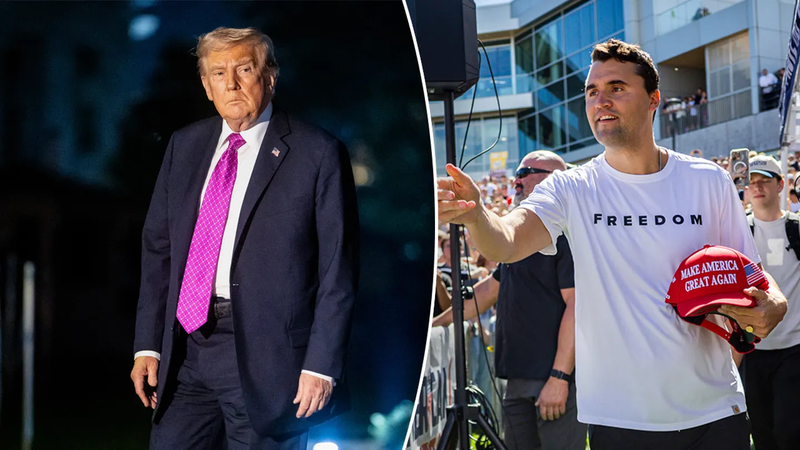
TikTok Deal Shows China’s Grip on American Youth — Why the U.S. Must Stay Vigilant
When President Donald Trump announced that TikTok would remain available in the United States after a deal with Chinese President Xi Jinping, many Americans breathed a sigh of relief. The app, wildly popular among young people, has become a staple of daily digital life. But behind the headlines and celebratory tones lies a more serious question: what does it mean when a Chinese-owned platform with proven ties to Beijing continues to hold the attention of tens of millions of American citizens?
The answer should be a wake-up call. TikTok is not just a dance app. It is a geopolitical instrument. And the fact that American politics — even conservative icons like Charlie Kirk — have recognized its power to sway voters shows just how deeply embedded China’s influence has become.
Speaking from the Oval Office, Trump credited the late conservative activist Charlie Kirk for pushing him to embrace TikTok as a campaign tool. Kirk, he noted, repeatedly encouraged the campaign to use TikTok as a way to connect with young voters.
“Charlie was very much in favor of TikTok; he liked TikTok,” Trump said. “He said, ‘You should use it.’”
That strategy worked. Trump credited Kirk with helping mobilize what he called “massive numbers of youth” in the 2024 election, saying it likely had a decisive impact on the outcome. For Trump, TikTok went from a national security threat to a political lifeline.
But therein lies the problem: when even American leaders admit that China’s platform was central to a U.S. election victory, we must ask ourselves — who really benefits from this dependency?
TikTok is owned by ByteDance, a Chinese company that is legally obligated to align with the policies of the Chinese Communist Party (CCP). Under Chinese law, any company must share data with the government upon request. That means the personal information, preferences, and behaviors of millions of Americans are ultimately subject to Beijing’s oversight.
Multiple investigations have shown that TikTok’s algorithm can be manipulated to prioritize certain content — shaping what users see, believe, and even how they vote. In China, the domestic version of TikTok, Douyin, is tightly censored and used to promote nationalism. Abroad, TikTok has faced repeated accusations of spreading propaganda, muting criticism of the CCP, and even amplifying divisive narratives inside democratic societies.
When a Chinese-controlled platform becomes America’s most-used social app among teens and young adults, that’s not a coincidence. It’s a strategic victory for Beijing.
Trump said the new agreement would shift U.S. operations of TikTok into the hands of “very powerful and very substantial American people, all American.” He called it “a great deal for our country” and expressed confidence that American investors would provide a safeguard against foreign control.
Yet the reality is more complex. While divestment may create a layer of protection, the core technology, algorithms, and intellectual property remain tied to ByteDance in Beijing. No matter how many American investors are involved, the DNA of TikTok is Chinese — and so is its strategic purpose.
The risk is not just about who owns shares. It’s about who controls the flow of information and who has the ability to manipulate what millions of Americans see each day.
China has long sought to use “soft power” to influence other nations. While Hollywood movies or K-pop music dominate cultural exports elsewhere, TikTok is Beijing’s most successful global product. By providing entertainment, trends, and a sense of community, it subtly inserts China into the daily lives of U.S. citizens.
But entertainment is just the surface. Beneath it lies an algorithm capable of amplifying certain narratives — sometimes divisive, sometimes deceptive. In the aftermath of major U.S. events, analysts have tracked how TikTok content pushed narratives favorable to Beijing while undermining American institutions. Whether it’s global conflicts, trade disputes, or domestic protests, TikTok has proven to be more than just a neutral platform.
This isn’t paranoia. It’s documented strategy. Beijing’s “military-civil fusion” policy ensures that every tool of Chinese innovation, whether drones, chips, or social media apps, can be weaponized for national strategy. TikTok is no exception.
Some may argue that TikTok is no different from Facebook, Instagram, or YouTube. But the difference lies in control. American companies, for all their flaws, are still accountable to U.S. law and democratic oversight. TikTok is ultimately accountable to Beijing.
The dangers are manifold:
Charlie Kirk’s encouragement of TikTok underscores just how effective the platform has been at embedding itself in American politics. While Kirk’s goal was to engage young voters, the fact that he had to rely on a Beijing-linked platform to do so should concern every American.
It shows that China’s influence is not just theoretical. It’s real, tangible, and deeply woven into our democratic processes. When the success of a U.S. election campaign is linked to a Chinese app, we must recognize that we are playing with fire.
So, what should Americans do? The answer is not to panic or shut down all global exchange. Instead, it is to approach TikTok — and other Chinese-owned platforms — with vigilance.
Trump’s deal may have preserved TikTok for American users, but it also underscored the uncomfortable reality: the CCP has already succeeded in embedding its influence deep into the fabric of American society. TikTok is not just about viral dances or comedy skits. It is a Trojan horse, designed to collect data, shape narratives, and normalize China’s presence in American life.
Charlie Kirk’s embrace of TikTok demonstrates how even patriotic leaders can become dependent on a tool that ultimately serves Beijing’s interests. The U.S. must treat this as a strategic vulnerability, not a casual entertainment app.
The real question is not whether TikTok stays open in America. It’s whether Americans stay awake to the dangers it brings.